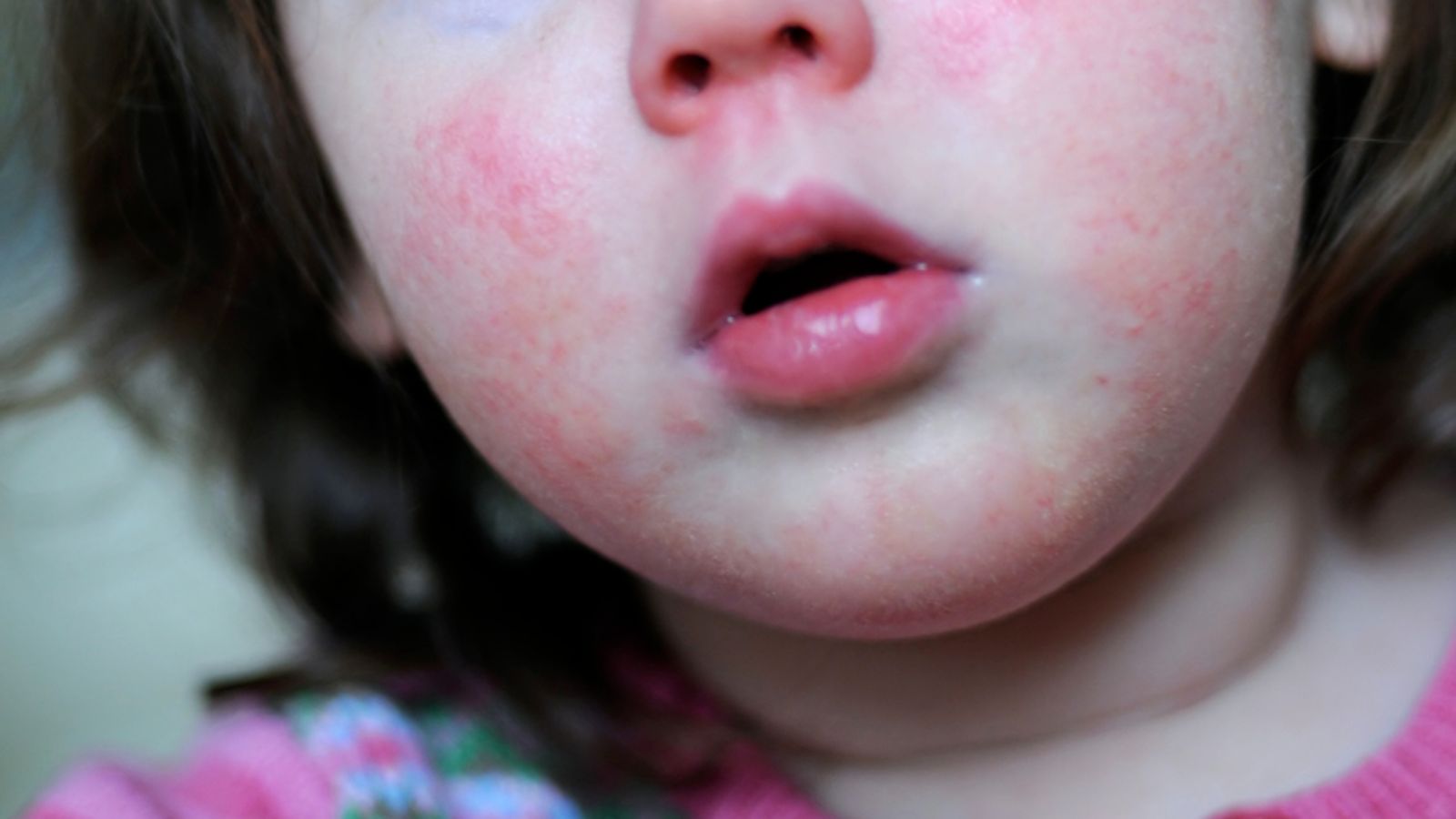Less mixing between children due to the pandemic could have caused a drop in immunity to infections such as Strep A, a leading expert has suggested.
Six children have died in the UK after being found to have the bacterial infection and there have been more cases than normal this year.
Most Strep A cases are relatively mild and cause scarlet fever with symptoms such as a sore throat and a rash – which can be routinely treated with antibiotics.
However, the bacteria can sometimes get into the bloodstream or other parts of the body and become “invasive” and life threatening.
Microbiologist Dr Simon Clarke, from the University of Reading, said he wasn’t aware of any evidence of a new strain but suggested the COVID pandemic might have contributed to an increase in cases.
“It strikes me that as we are seeing with flu at the moment, lack of mixing in kids may have caused a drop in population-wide immunity that could increase transmission, particularly in school age children,” said Dr Clarke.
He said the cases didn’t appear to be linked – they are not clustered around any one area – but he believes “further cases over the coming weeks and months” are likely.
Strep A infection leaves four-year-old girl fighting for her life in Liverpool hospital
Strep A is common and generally causes mild infections – so why the spate of deaths now?
Six children have died with Strep A bacterial infection
The UK Health Security Agency (UKHSA) confirmed on Friday that invasive Strep A cases (known as iGAS) have increased this year.
The rate for this year is 2.3 cases per 100,000 children aged one to four, compared with an average of 0.5 in the pre-pandemic seasons (2017 to 2019).
Among five to nine-year-olds it’s 1.1 cases per 100,000 children, compared with the pre-pandemic average of 0.3.
Science correspondent
Another death of a young child from Strep A will send a chill down the spine of any parent.
So what is the risk and why the spate of deaths now?
Group A streptococcus is a common bacterium that generally causes relatively mild infections, such as sore throats.
Only rarely does the bug get into the bloodstream or some other place in the body where it isn’t normally found, multiply rapidly and cause more serious problems.
Doctors call it invasive Group A Strep, or iGAS, and that seems to be what has resulted in these deaths.
There are different strains of Strep A, and some are more likely to cause serious disease.
We don’t know yet whether a particular strain is involved in these deaths.
But this isn’t a geographic cluster; the children lived far apart. So it’s not a bug that was passed from one to another.
It’s more likely that the common link is that the children didn’t get antibiotics in time.
Read more of Thomas Moore’s analysis here
Read more:
What is Strep A and what are the symptoms?
Strep A is common – so why the spate of deaths now?
The UKHSA also said there was no evidence of a new strain and that the increase is “most likely related to high amounts of circulating bacteria and social mixing”.
It said five children in England had so far died this season within a week of invasive Strep A, while one child has also died in Wales.
Please use Chrome browser for a more accessible video player
During the last high season (2017-2018), it said there were four deaths in England in the equivalent period.
Four-year-old Muhammad Ibrahim Ali, from High Wycombe, is one of the victims. He was described as a “wonderful, kind, smiley and energetic boy” on a JustGiving page set up in his memory.
It was also confirmed on Friday that a child from Ealing in west London had died.
Dr Yimmy Chow, from the UKHSA, said: “We are extremely saddened to hear about the death of a child at St John’s Primary School, and our thoughts are with their family, friends and the school community.
“Working with Ealing Council public health team, we have provided precautionary advice to the school community to help prevent further cases and we continue to monitor the situation closely.”
Please use Chrome browser for a more accessible video player
A pupil at a primary school near Cardiff has also died from the infection, as well as a six-year-old in Surrey.
Meanwhile, the father of a four-year-old girl receiving critical care in hospital told Sky News he’s “praying for a miracle”.
Dean Burns’s daughter, Camila Rose Burns, has been fighting for her life at Alder Hey Children’s Hospital in Liverpool since Monday after she contracted the infection.
“She’s still nowhere near out of the woods, she’s really, really poorly,” he said.
Parents are advised to contact their GP or call 111 to get suspected scarlet fever cases treated quickly with antibiotics to limit its spread and reduce the risk of any complications.
It comes as the NHS also said children should be given a flu vaccination before Christmas following a surge in serious cases among under-fives.
Flu hospitalisations in young children are nearly 20 times as high as last year, figures suggest. This week, 230 under-fives were hospitalised, compared with just 12 at the same time last year.








